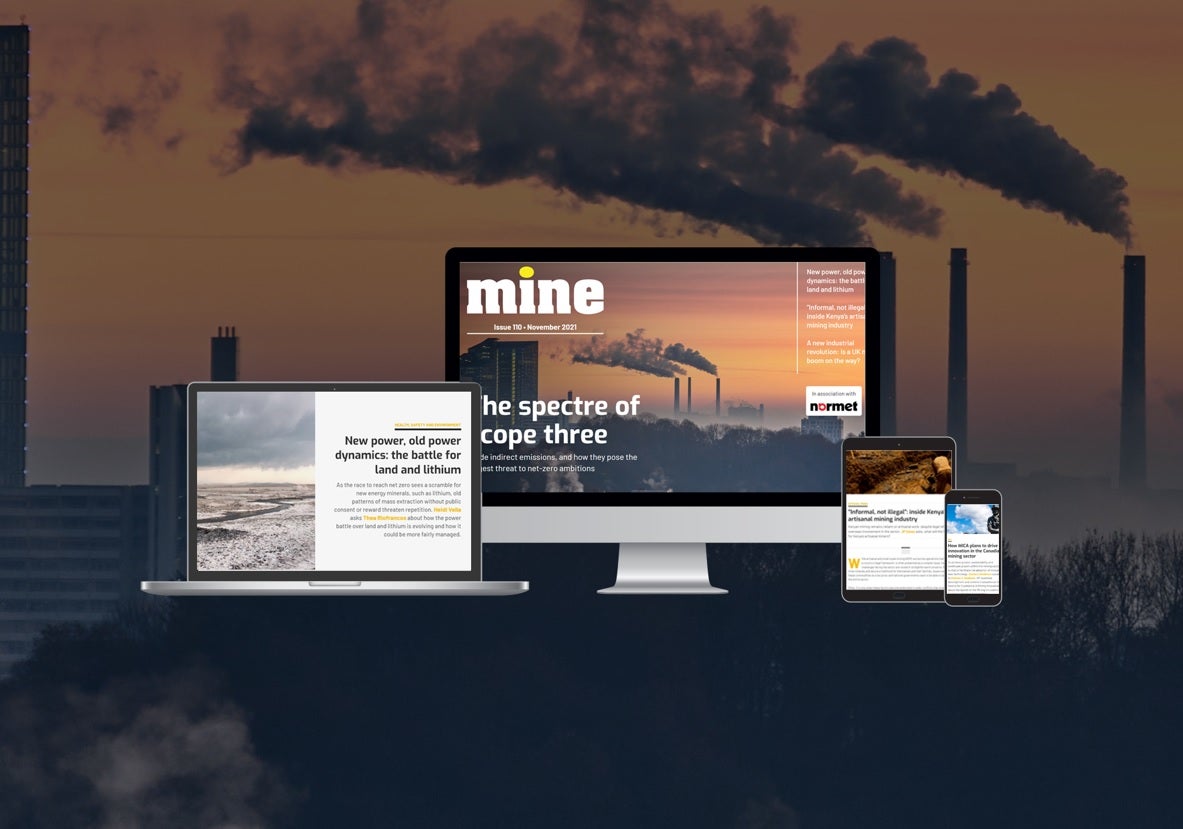
Scope three emissions, those produced not by miners but their customers and clients, exist in a grey area between the actors involved in the mining industry, and loom large behind the sector’s biggest companies. Who, if anyone, is responsible for mitigating them?
We’ll also go around the world to look at some of the most unique, and controversial, mining projects across the globe. From a potential new industrial revolution on the British Isles to the formalisation of artisanal mining in Kenya, and growing concern over Chinese involvement in Afghan minerals, these projects could radically alter the mining landscape of their respective countries.
We also ask if the current methods of extraction and refining disproportionately harm those closest to mine sites, and whether these processes show any signs of change. Within the context of delivering a just energy transition, can these imbalances ever be considered fair?
Whether you are on a desktop, tablet or smartphone, you can read the magazine for free online, and join the conversation on Twitter.
In this issue

New power, old power dynamics: the battle for land and lithium
As the race to reach net zero sees a scramble for new energy minerals, such as lithium, old patterns of mass extraction without public consent or reward threaten repetition. Heidi Vella asks Thea Riofrancos about how the power battle over land and lithium is evolving and how it could be more fairly managed.

China and the future of Afghanistan’s mineral wealth
The future of Afghanistan’s vast mineral wealth has oft been underreported. As the Taliban consolidate their grip on power, the future of these deposits come into question. Zachary Skidmore asks, with Western donors slashing aid budgets, could China emerge as a benefactor and an investment partner?

How MICA plans to drive innovation in the Canadian mining sector
To achieve greater sustainability and continued growth within the mining sector, it is vital to facilitate the adoption of innovative new technology. Zachary Skidmore speaks to Charles C. Nyabeze, VP, business development and commercialisation at the Centre for Excellence in Mining Innovation, about the launch of the Mining Innovation Commercialisation Accelerator.

“Informal, not illegal”: inside Kenya’s artisanal mining industry
Kenyan mining remains reliant on artisanal work, despite legal reforms and overseas involvement in the sector. JP Casey asks, what will the future hold for Kenya’s artisanal miners?

The spectre of scope three: indirect emissions and net-zero ambitions
While most of the world’s diversified miners have established a reduction plan centred around their scope 1 and 2 emission profiles Zachary Skidmore asks why, the majority have yet to set scope 3 targets, which make up much of mining’s overall emissions.

A new industrial revolution? Is a UK mining boom on the way?
It’s a story that can be traced back for centuries: the UK’s mining history. The islands are home to natural minerals, metals and even precious metals. Andrew Tunnicliffe investigates the current environment for mining and ask, is there a new age on the horizon?

Next issue: water management and water pollution
Water is an essential component of human life, yet is often one of the resources most easily disrupted and damaged by careless mining, with industrial interference and waste dumping polluting water sources.
We look at water sources tied to mining operations around the world, and ask what can be done to ensure productivity and protection are balanced.



